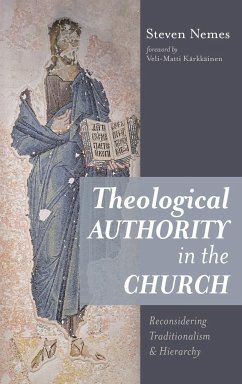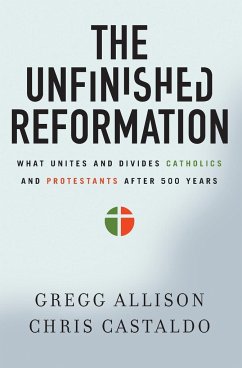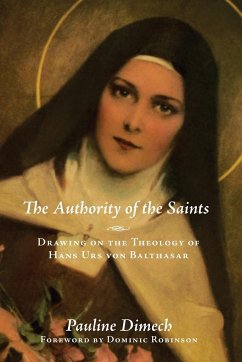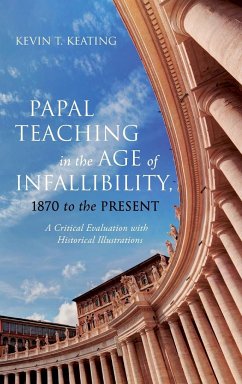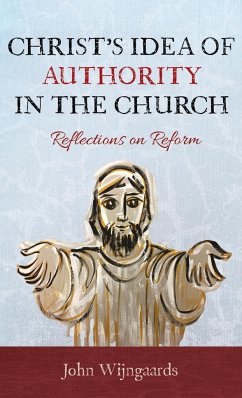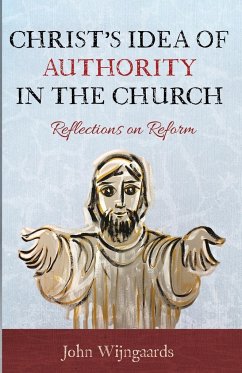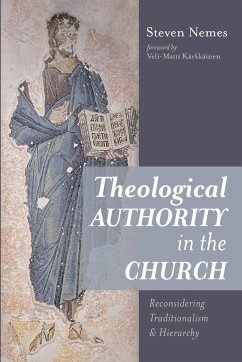
Theological Authority in the Church
Versandkostenfrei!
Versandfertig in 1-2 Wochen
18,99 €
inkl. MwSt.
Weitere Ausgaben:

PAYBACK Punkte
9 °P sammeln!
Who in the church has the right to tell others what is to be done or believed for the sake of friendship with God? How are theological disputes and differences of opinion to be resolved? Against the recent trend toward more ""traditionalist"" and ""hierarchical"" conceptions of the church's role in theology, this book argues from the New Testament itself for a ""low"" conception of ecclesial theological authority. Drawing especially from Jesus's polemics against the Pharisees, it makes the case that no one in the church has any further authority than that of derivatively, fallibly, and in prin...
Who in the church has the right to tell others what is to be done or believed for the sake of friendship with God? How are theological disputes and differences of opinion to be resolved? Against the recent trend toward more ""traditionalist"" and ""hierarchical"" conceptions of the church's role in theology, this book argues from the New Testament itself for a ""low"" conception of ecclesial theological authority. Drawing especially from Jesus's polemics against the Pharisees, it makes the case that no one in the church has any further authority than that of derivatively, fallibly, and in principle reversibly relating and bearing witness to the teachings of Jesus and the works of God in him. The book concludes with an extended consideration of the radical anti-dogmatic and anti-metaphysical consequences of this thesis for the future of Protestant Christian theology vis-a-vis the catholic tradition.





